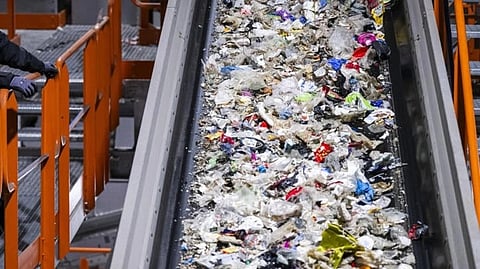
- NEWS
- the EDIT
- COMMENTARY
- BUSINESS
- LIFE
- SHOW
- ACTION
- GLOBAL GOALS
- SNAPS
- DYARYO TIRADA
- MORE

SINGAPORE — President Ferdinand Marcos Jr. said the Philippines' interest in waste-to-energy projects is still at the micro level as the country is transitioning from fossil fuels to renewables.
In a meeting with Brunei's major players in the energy sector in Brunei before departing for Singapore, Marcos said legal and regulatory concerns and local government waste scale served as hurdles in implementing waste-to-energy projects.
"There’s a great deal of interest in that (waste-to-energy). But right now, it is not at the very macro level. It’s very much at the micro level. Yeah, it’s basically local governments because there is the problem, the attendant problem of what do we do with our waste,” Marcos said.
“The old solution was to ship them somewhere else and pay somebody else to put them in a landfill. Nobody wants it anymore. Nobody is not worth [the] money anymore for anyone. That’s a problem, especially in the big cities. But then that’s also where that solution could be most viable,” Marcos also said.
“We had to organize garbage collection in half the province to be able to support that technology. And there's the problem this politics entered into it. It was just a little difficult. You must be familiar with the problem,” the Chief Executive pointed out.
However, Marcos said the country is still interested in investing in waste-to-energy projects as well as the enhancements on oil and gas collaborations.
“But I think the legislators are coming around to the understanding that there actually are viable and clean solutions to the problem of waste disposal. So you take care of two very difficult problems at the same time,” Marcos added.
The President met with BSP, BLNG, Total Energies in Brunei, Serikandi Oilfield Services, and Adinin Group of Companies.
Brunei is connecting with neighboring nations to explore renewable energy-based connectivity, according to the Presidential Communications Office (PCO).
The PCO stated that oil and gas would remain vital to the regional energy balance during the transition.
